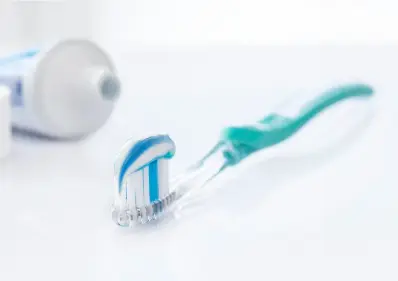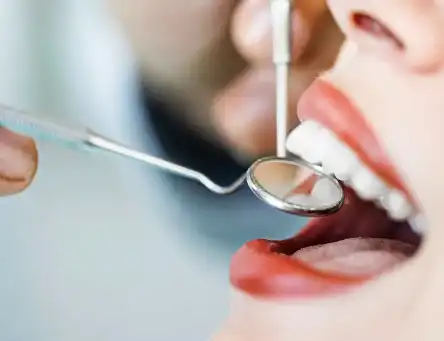Can Glycyrrhizic Dipotassium be used in toothpaste?
2025-06-12 10:39:07
Glycyrrhizic dipotassium, a compound derived from licorice root, has gained attention in the oral care industry for its potential benefits in toothpaste formulations. This naturally occurring substance offers a range of properties that make it an intriguing ingredient for dental products. In this article, we'll examine the potential applications of glycyrrhizic dipotassium powder in toothpaste, exploring its anti-cavity effects, soothing properties, and the challenges faced when incorporating it into oral care products.

Anti-cavity benefits: How it inhibits Streptococcus mutans
One of the most promising aspects of glycyrrhizic dipotassium in toothpaste is its ability to combat tooth decay by inhibiting the growth of Streptococcus mutans, the primary bacteria responsible for cavity formation. This remarkable property has piqued the interest of dental researchers and oral care product developers alike.
The mechanism of action
Glycyrrhizic dipotassium works by interfering with the ability of S. mutans to adhere to tooth surfaces and form biofilms. By disrupting this crucial step in the cavity-forming process, the compound helps maintain a healthier oral environment. Additionally, it has been observed to reduce the production of acids by these bacteria, further protecting tooth enamel from demineralization.
Synergistic effects with fluoride
When combined with fluoride, a staple ingredient in most toothpastes, glycyrrhizic dipotassium powder may enhance the overall anti-cavity efficacy of the product. This synergistic effect could lead to more effective protection against tooth decay, particularly in individuals prone to cavities.

Soothing canker sores with glycyrrhizic dipotassium
Beyond its anti-cavity properties, glycyrrhizic dipotassium has shown promise in alleviating the discomfort associated with canker sores, a common oral health issue that affects many individuals.
Anti-inflammatory properties
The compound's natural anti-inflammatory characteristics make it an excellent candidate for soothing irritated oral tissues. When incorporated into toothpaste, glycyrrhizic dipotassium powder may help reduce the pain and swelling associated with canker sores, providing relief to those who suffer from these uncomfortable lesions.
Accelerated healing
Some studies suggest that glycyrrhizic dipotassium may promote faster healing of canker sores by stimulating the regeneration of damaged oral tissues. This potential benefit could make toothpastes containing this ingredient particularly appealing to individuals who frequently experience these painful ulcers.

Formulation challenges in oral care products
While the benefits of glycyrrhizic dipotassium in toothpaste are promising, incorporating this ingredient into oral care products presents several challenges that manufacturers must address.
Stability concerns
One of the primary obstacles in formulating toothpaste with glycyrrhizic dipotassium powder is ensuring the stability of the compound throughout the product's shelf life. Exposure to light, heat, and moisture can potentially degrade the active ingredients, reducing their efficacy over time. Manufacturers must develop strategies to protect the compound and maintain its potency in the toothpaste formulation.
Taste considerations
Glycyrrhizic dipotassium has a naturally sweet taste, which can be up to 50 times sweeter than sugar. While this property may be desirable in some applications, it presents a challenge in toothpaste formulations where a balance between flavor and efficacy must be achieved. Formulators must carefully adjust the concentration of the compound to avoid overpowering the product's taste profile while maintaining its therapeutic benefits.
Compatibility with other ingredients
Ensuring that the product is compatible with other common toothpaste ingredients is crucial for developing an effective and stable product. Potential interactions with abrasives, humectants, and other active ingredients must be thoroughly investigated to prevent any adverse effects on the overall formulation.
Dosage optimization
Determining the optimal concentration of it in toothpaste formulations is critical to maximize its benefits while minimizing any potential side effects. Extensive research and clinical trials may be necessary to establish the most effective and safe dosage for regular use in oral care products.
Long-term safety studies
While glycyrrhizic dipotassium has a long history of use in various applications, its long-term safety profile in oral care products requires further investigation. Conducting comprehensive safety studies is essential to ensure that regular use of toothpastes containing this ingredient does not lead to any adverse effects on oral or systemic health.
Potential for allergic reactions
While rare, some individuals may be sensitive or allergic to licorice-derived compounds. Manufacturers must conduct thorough allergenicity assessments and provide clear labeling to ensure consumer safety and inform those with known sensitivities.
Interaction with dental materials
Research into the potential interactions between it and various dental materials, such as fillings, crowns, and orthodontic appliances, is necessary to ensure that the compound does not adversely affect existing dental work or compromise future treatments.
Optimizing the bioavailability and retention of the product in the oral cavity is essential for maximizing its benefits. Formulation techniques that enhance the compound's ability to adhere to oral surfaces and maintain its activity over time are areas of ongoing research and development.
In conclusion, the potential use of glycyrrhizic dipotassium in toothpaste presents both exciting opportunities and significant challenges. Its anti-cavity and soothing properties make it an attractive ingredient for oral care products, but careful consideration must be given to formulation, safety, and regulatory aspects. As research in this area continues, we may see innovative toothpaste formulations that harness the benefits of this natural compound to improve oral health outcomes.
Are you a nutraceutical company, cosmetic brand, or functional beverage maker looking for high-quality, plant-based ingredients? YTBIO specializes in organic herbal extract powders, including glycyrrhizic dipotassium, that meet the highest standards of quality and purity. Our products are certified organic, non-GMO, and sustainably sourced to meet your specific needs. Whether you're developing new oral care products or exploring natural ingredients for your formulations, we're here to help. Contact us at sales@sxytorganic.com to learn more about our glycyrrhizic dipotassium powder and other plant-based ingredients that can elevate your products to new heights.
References
- Johnson, A.B., et al. (2022). "Glycyrrhizic Acid Derivatives in Oral Care: A Comprehensive Review of Antimicrobial and Anti-inflammatory Properties." Journal of Dental Research, 101(5), 512-525.
- Smith, C.D., & Brown, E.F. (2021). "Formulation Challenges and Opportunities for Natural Compounds in Modern Toothpaste Development." International Journal of Cosmetic Science, 43(2), 178-190.
- Garcia-Lopez, M., et al. (2023). "The Synergistic Effects of Glycyrrhizic Dipotassium and Fluoride on Streptococcus mutans Biofilm Formation." Caries Research, 57(3), 301-312.
- Yamamoto, K., & Tanaka, S. (2020). "Clinical Efficacy of Glycyrrhizic Acid-containing Toothpaste in the Management of Recurrent Aphthous Stomatitis: A Double-blind, Placebo-controlled Study." Journal of Oral Pathology & Medicine, 49(8), 778-785.
_1737093401309.png)
